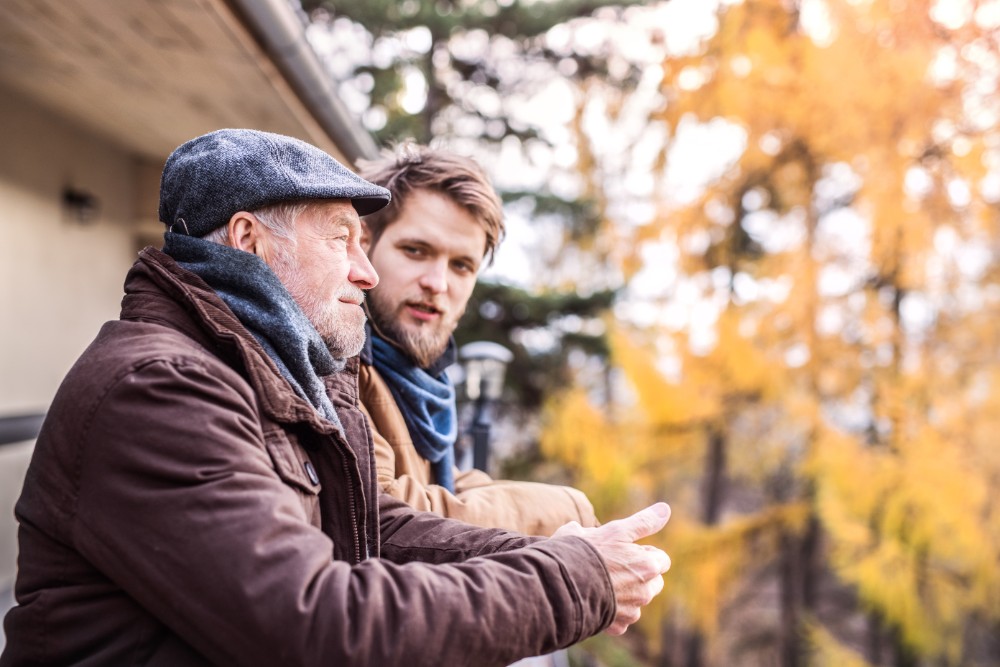
Sometimes as we’re undergoing the recovery process and learning how to heal ourselves, we still feel burdened by feelings of shame, embarrassment and disappointment that we’ve carried with us throughout our lives. These feelings are so strong that we become inclined to keep our experiences to ourselves. We’re hesitant to share our stories with other people, even people we know are also in recovery. We will close ourselves off from other people, isolate ourselves, and shut down rather than open up to people about the difficult things we’ve been through. We don’t want to confide in people lest they judge and reject us. We’re afraid of being looked down upon and feeling unloved. We often don’t see our lives as being valuable, and we don’t think our stories hold any value. We see ourselves as less-than, as inadequate and unworthy, and we see our experiences in the same way. We see them as sources of embarrassment, regret and remorse. We don’t think of them as anything to be proud of, to embrace, or even to admit to, so we keep them to ourselves. A huge part of our recovery is learning to see the value in our experiences, and then developing the confidence to be able to share our stories with other people in order to be able to help them.
Loving Ourselves
Our recovery work is largely a process of learning self-love. Our addictions and mental health issues are often manifestations of the ways in which we hate ourselves – how we abandon and neglect ourselves, how we harm ourselves, how self-destructive and self-sabotaging we are. We discover that if we want to heal, we’re going to need to figure out how to love and accept ourselves unconditionally, otherwise we’ll always be working against ourselves, chipping away at our self-esteem and sense of worth, and derailing our progress. One of the most crucial elements of loving ourselves is getting to the point where we’re no longer debilitated by regret for the things we’ve done wrong in our lives, the mistakes we’ve made and ways in which we’ve hurt people. We can’t love ourselves, and we can’t heal, if we’re so consumed with shame and regret that we hate ourselves and are perpetually turning against ourselves.
Loving Our Stories
Healing means moving on from beating ourselves up with shame, and making the choice to have more compassion, forgiveness and understanding for ourselves. When we do this work, we start to see our stories as inextricable parts of our truth and of who we are. As we’re learning to love ourselves, self-love means learning to love the stories of our experiences also. We learn that everything we’ve been through has helped to shape who we are, and so we love all those various pieces because we love ourselves. Everything we’ve been through has value to our lives and to our self-development because it has helped to get us to this point and has been the growing foundation for our character and our identity. We can’t love ourselves now if we hate where we’ve been, if we hate the stories of our pasts. We can’t hope to have a healthy recovery, or a fulfilling future, if we hate everything we’ve been through in our lives.
Helping Others
When we embrace our stories for how they’ve strengthened and empowered us, we start to see how much value they hold not just for us but for the other people in our lives we can inspire. We can be sources of inspiration, encouragement and motivation for others who are working to recover, who aren’t sure if they’ll be able to make it through the pain of their own stories, who need real-life examples that recovery is possible. Everything we learn can be wisdom we pass onto other people. Every bit of pain we’ve experienced can be guidance for other people. Every time we felt weak but then overcame our feelings of weakness and fear can help other people to find their own strength. Every time we transcended our limitations and conquered our limiting beliefs can be evidence for other people that this work is possible for them too. They can see themselves in us and their own stories in our stories. They can take comfort, solace and reassurance in them. They can be inspired and motivated to conquer their own fears, take their own spiritual journeys, and invest in their own recoveries. They can see firsthand that it’s possible for us to find happiness after a life of addiction, turmoil and mental illness.
Connecting with Others
Moving through our feelings of shame and disappointment means we can shift our self-perception and repair our sense of self-worth. Our experiences with addiction are now important parts of our life stories that we use to bolster our self-love, to embrace ourselves and to celebrate who we are, rather than beating ourselves up, judging ourselves, and keeping our stories secret and hidden from the world. By embracing our stories, we learn more about human nature. We learn what it means to heal from shame and to forgive ourselves. We have another way of connecting with people and being able to relate to them and empathize with them around these universal truths of pain, self-deprecation and self-forgiveness.
The Guest House Ocala provides unparalleled, premier-quality treatment to those who suffer from self-defeating behaviors brought on by trauma and its underlying issues. We are uniquely equipped to help our guests heal from trauma-induced substance abuse, process addiction, anxiety and depression in a safe, comfortable and confidential setting.
Call 855-483-7800 today for more information.
theguesthouseocala.com
3230 Northeast 55th Avenue Silver Springs, FL 34488